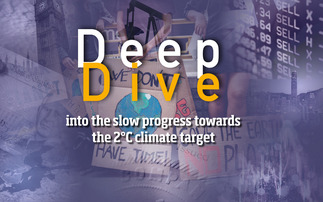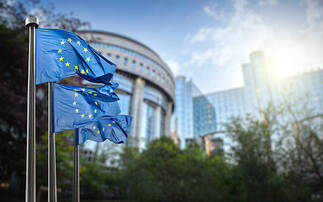Coronavirus has presented vast challenges for many industries, but sustainable finance appears to be booming.
To continue reading this article...
Join Investment Week for free
Signup and gain exclusive members-only insights - all free of charge!
- Unlimited access to real-time news, analysis and opinion from the investment industry, including the Sustainable Hub covering fund news from the ESG space
- Get ahead of regulatory and technological changes affecting fund management
- Important and breaking news stories selected by the editors delivered straight to your inbox each day
- Weekly members-only newsletter with exclusive opinion pieces from leading industry experts
- Be the first to hear about our extensive events schedule and awards programmes







